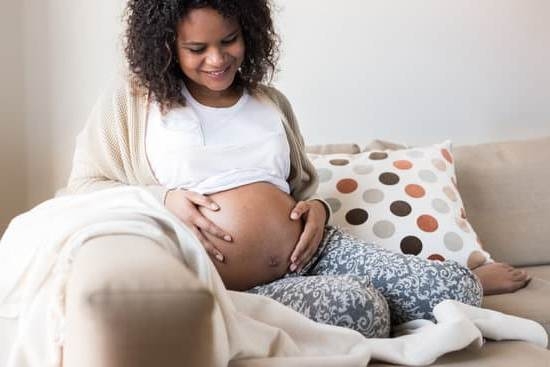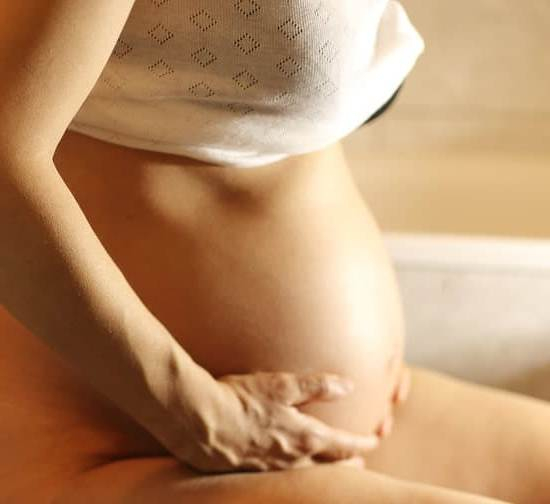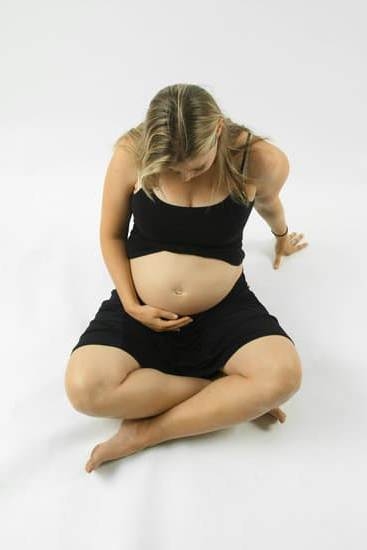When does baby heartbeat start during pregnancy? Hearing the rhythmic sound of a baby’s heartbeat is a pivotal moment for expectant parents, symbolizing the first signs of life within the womb. The development of the baby’s heart is a crucial milestone in prenatal care, providing reassurance and hope to soon-to-be parents. Understanding when and how the baby’s heartbeat begins can offer insight into the intricate process of fetal development.
As pregnancy progresses, the stages of fetal development unfold, leading to significant milestones such as the formation of the baby’s heart. During the embryonic stage, typically around week 5 or 6 of pregnancy, the foundation for the baby’s heart begins to take shape. It is at this early phase that specialized cells start forming and eventually give rise to the beating heart that will sustain life throughout gestation.
The miraculous formation of the baby’s heart involves a complex process where structures like chambers and valves are meticulously crafted to function effectively. As these components come together, usually by around week 6 or 7 of pregnancy, the baby’s heart starts beating rhythmically. This pulsating rhythm serves as a powerful indicator of life and well-being for both healthcare providers and expectant parents alike.
Understanding Fetal Development
Fetal development during pregnancy is a remarkable and intricate process that begins at the moment of conception. From a single cell, a complex human being with organs, limbs, and a beating heart is formed over the course of nine months. Understanding the stages of fetal development can provide expectant parents with valuable insight into the miraculous journey their baby undergoes before entering the world.
The development of a baby’s heart is one of the most crucial milestones during pregnancy. The heart starts to form as early as three weeks after conception, when the embryo is just about the size of a poppy seed.
At this stage, known as the embryonic stage, the first cells that will eventually become the heart begin to differentiate and organize themselves into the vital organ responsible for pumping blood throughout the body. By week five, the primitive tube that will develop into a fully functional heart begins to beat rhythmically.
As fetal development progresses, around six weeks into pregnancy, an ultrasound may be able to detect the first flicker of the baby’s heartbeat. This momentous event marks a significant milestone for expectant parents, as it provides tangible evidence of their baby’s presence and vitality within the womb. The ability to hear your baby’s heartbeat for the first time can be an emotional and awe-inspiring experience that creates a deep bond between parents and their unborn child.
Embryonic Stage
The embryonic stage of pregnancy is a crucial time when the foundation for the baby’s development is laid. During this period, which lasts from week 5 to week 10 of pregnancy, the baby’s major organs and structures begin to form. One of the most significant developments during this stage is the formation of the baby’s heart. The process begins around week 5 or 6 when a tiny tube starts to beat and pump blood.
The baby’s heartbeat is usually detected via ultrasound around week 6 or 7 of pregnancy. However, it may vary depending on various factors such as the position of the uterus, clarity of images obtained, and equipment used. At this early stage, the heartbeat may appear as a flickering light on the monitor before evolving into a recognizable rhythm. This moment is often a significant milestone for expectant parents as it provides tangible evidence of their growing baby.
Understanding when does baby heartbeat start during pregnancy can bring immense joy and relief to expecting parents. It signifies that the baby’s cardiovascular system is developing correctly and serves as a reassurance that everything is progressing as it should be. Additionally, hearing the baby’s heartbeat for the first time can create a deep emotional connection between parents and their unborn child, strengthening the bond even further.
| Week | Development Stage |
|---|---|
| Week 5-6 | Tiny tube starts to beat and pump blood |
| Week 6-7 | Baby’s heartbeat can typically be detected via ultrasound |
Formation of Heart
The formation of the baby’s heart is a crucial and fascinating process that occurs during pregnancy. The human heart begins to develop very early in pregnancy, even before many women realize they are pregnant. Around week 3 of gestation, the baby’s heart starts to take shape as a simple tube-like structure. By week 5, this structure begins to beat and pump blood, although it may not yet be audible.
As the weeks progress, the heart continues to develop and undergo complex changes. By week 6 or 7, major blood vessels have formed, allowing for proper circulation between the mother and the developing fetus. At this point, the heart has divided into four chambers – two atria and two ventricles – enabling it to function more efficiently. This stage marks a significant milestone in fetal development as the baby’s circulatory system becomes more advanced.
Around weeks 8 to 10 of pregnancy is when the baby’s heartbeat can typically be detected through ultrasound or Doppler devices. It is an exciting moment for parents-to-be as they hear this rhythmic sound that signifies life within the womb.
The average fetal heart rate at this stage is around 110-160 beats per minute, reflecting the rapid growth and activity of the developing baby. Monitoring the heartbeat regularly throughout pregnancy provides important insights into the health and well-being of both mother and child.
| Weeks of Pregnancy | Developmental Milestones |
|---|---|
| Weeks 3-5 | The heart begins to form as a tube-like structure and starts beating |
| Weeks 6-7 | The heart divides into four chambers; major blood vessels form |
| Weeks 8-10 | Baby’s heartbeat can usually be detected; average rate is 110-160 bpm. |
Timeline of Heartbeat
During pregnancy, one of the most anticipated moments for expectant parents is hearing their baby’s heartbeat. The sound of that tiny thump brings a sense of reassurance and connection between parents and their unborn child. Understanding when exactly the baby’s heartbeat starts can help guide these expectations and provide insight into the stages of fetal development.
Here is a timeline to shed light on when the baby’s heartbeat can typically be detected during pregnancy:
- At around 5-6 weeks gestation: The first signs of cardiac activity can be observed through an ultrasound, usually in the form of a flickering motion.
- By week 6-7: The baby’s heart begins to beat rhythmically, but it may still be too early to detect with a Doppler device.
- Between 8-10 weeks: In most cases, healthcare providers can use a Doppler ultrasound to listen to the baby’s heartbeat during routine prenatal check-ups.
It’s important to note that each pregnancy is unique, and factors such as the position of the uterus, maternal weight, and equipment used can influence when the baby’s heartbeat becomes audible. Nevertheless, hearing that precious sound can bring immense joy and relief to expectant parents as they bond with their growing little one.
Methods of Detecting Heartbeat
During pregnancy, monitoring the baby’s heartbeat is an essential part of prenatal care. Healthcare providers use various methods to detect and listen to the baby’s heartbeat throughout pregnancy. One of the most common methods used is a fetal Doppler, which uses ultrasound technology to listen to the sound of the baby’s heartbeat. This non-invasive procedure allows expectant parents to hear their baby’s heartbeat during routine check-ups.
Ultrasound
Ultrasound technology is another method healthcare providers use to detect and monitor the baby’s heartbeat during pregnancy. An ultrasound scan can provide a visual image of the developing fetus, including its heart beating. This imaging technique helps assess the baby’s growth, development, and overall well-being in the womb. Ultrasounds are typically performed at different stages of pregnancy to ensure that the baby is healthy and thriving.
Fetoscope
A fetoscope is another tool that healthcare providers may use to listen to the baby’s heartbeat during pregnancy. This specialized stethoscope-like device allows them to directly hear the sounds of the fetal heart through the mother’s abdomen.
While not as commonly used as a fetal Doppler or ultrasound, a fetoscope can still provide valuable information about the baby’s heart rate and rhythm. It also offers a more traditional way for parents to connect with their unborn child by listening to their heartbeat in real-time.
Factors Affecting Heartbeat
During pregnancy, the moment when a parent gets to hear their baby’s heartbeat for the first time is an incredibly special and emotional experience. Understandably, many parents are eager to know when they can expect to hear that reassuring sound. However, several factors can influence when the baby’s heartbeat becomes detectable during pregnancy. Knowing these factors can help manage expectations and alleviate any concerns that may arise.
Position of the Baby
One factor that can affect the timing of when the baby’s heartbeat can be heard is the position of the baby within the womb. In some cases, if the baby is positioned in a way that makes it difficult for a healthcare provider to pick up on the heartbeat with a Doppler device or ultrasound, it may take longer to detect.
The size and position of the uterus can also play a role in how soon the heartbeat is audible.
Equipment Used
The type of equipment used by healthcare providers can also impact when they are able to detect the baby’s heartbeat during pregnancy. Doppler devices and ultrasounds are commonly used tools for monitoring fetal development, but depending on the quality and sensitivity of the equipment, it may take longer to pick up on the fetal heartbeat. Factors such as signal strength and resolution can influence how early in pregnancy the heartbeat becomes audible.
Mother’s Body Composition
The mother’s body composition, particularly her abdominal tissue thickness, can affect how soon a healthcare provider is able to detect the baby’s heartbeat. Thicker layers of tissue may require more time for sound waves from a Doppler device or ultrasound to penetrate and pick up on the fetal heartbeat.
Body mass index (BMI) and overall weight gain during pregnancy can also impact how early the baby’s heartbeat can be heard. It is essential to consider these factors when anticipating when this precious moment will occur in your prenatal journey.
Emotional Impact
When expectant parents first hear the heartbeat of their baby during pregnancy, it marks a significant milestone in their journey towards parenthood. The sound of the tiny heart beating can evoke a wave of emotions, ranging from excitement and joy to relief and gratitude. It serves as a powerful reassurance that their little one is growing and thriving inside the womb. Many parents describe the experience of hearing the baby’s heartbeat for the first time as magical and unforgettable.
- Excitement: Hearing the baby’s heartbeat can bring immense excitement to parents as it makes the pregnancy feel more real and tangible. It serves as a reminder of the new life that is being nurtured within the mother’s body.
- Connection: The sound of the baby’s heartbeat can deepen the emotional bond between parents and their unborn child. It allows them to feel a sense of connection with the little one who they have yet to meet but already love unconditionally.
- Relief: For many parents, hearing the baby’s heartbeat provides a sense of relief and comfort, knowing that their baby is healthy and developing as expected. It can alleviate fears and anxieties about the well-being of their unborn child.
The emotional impact of hearing the baby’s heartbeat extends beyond just reassurance; it also serves as a moment of reflection on the miracle of life itself. Expectant parents often marvel at the wonder of creation when they listen to that steady rhythm echoing through the monitor or during an ultrasound. It reminds them of the preciousness and fragility of life, filling them with gratitude for this remarkable journey they are embarking on together as a family.
- Anticipation: The sound of the baby’s heartbeat can fuel anticipation in expectant parents, building up excitement for meeting their little one in person. It acts as a constant reminder that soon they will hold their bundle of joy in their arms.
- Bonding: Listening to the rhythmic thumping sound can be a bonding experience not only between parents but also with other family members who may share in this special moment. It creates a shared connection centered around welcoming a new life into their lives.
- Gratitude: The emotional significance behind hearing the baby’s heartbeat often leads to feelings of deep gratitude for this new chapter in life. Parents may find themselves overwhelmed with thankfulness for this blessing and eager to nurture and protect their child with all they have.
Conclusion
In conclusion, the experience of hearing the baby’s heartbeat during pregnancy is a monumental moment for expectant parents. It signifies the tangible presence and life growing within the mother’s womb, bringing a sense of connection and reassurance. Understanding fetal development and the formation of the baby’s heart sheds light on this miraculous process that occurs within the womb.
For many parents-to-be, the question of “When does baby heartbeat start during pregnancy?” holds great significance. The timeline of when the baby’s heartbeat can typically be detected varies but is generally around 6 weeks gestation through ultrasound or Doppler technology. It is a moment that brings joy, relief, and a sense of reality to the pregnancy journey.
Overall, monitoring the baby’s heartbeat during pregnancy is crucial for ensuring the well-being and development of the growing fetus. It serves as a vital sign for healthcare providers to track and provides expectant parents with hope and reassurance that their little one is thriving in the womb. The emotional impact of hearing that precious sound echoes throughout their journey into parenthood, fostering love, excitement, and a deep bond with their unborn child.
Frequently Asked Questions
How Many Weeks Till a Baby Gets a Heartbeat?
A baby typically develops a heartbeat around 5-6 weeks of pregnancy. This is an exciting milestone as it marks the beginning of the baby’s circulatory system forming and functioning.
How Many Days of Pregnancy Does the Heartbeat Start?
The heart starts beating around 22 days into pregnancy, which is about 3-4 weeks. It begins as a tiny tube that eventually develops into a complex organ responsible for pumping blood throughout the body.
What if There Is No Heartbeat at 7 Weeks?
If there is no heartbeat detected at 7 weeks, it could indicate a potential issue with the pregnancy. It may be a sign of miscarriage or other complications that would require further evaluation by a healthcare provider to determine the next steps.

Welcome to my fertility blog. This is a space where I will be sharing my experiences as I navigate through the world of fertility treatments, as well as provide information and resources about fertility and pregnancy.





